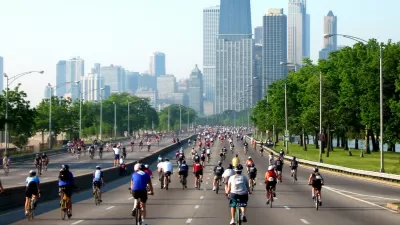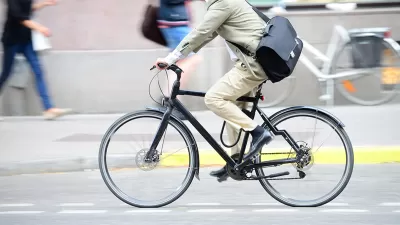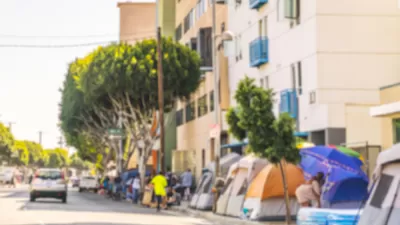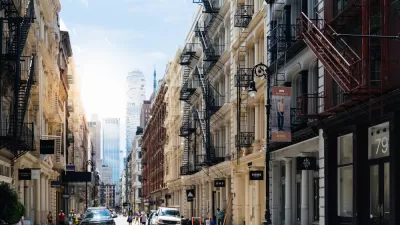A pair of articles explores the implications of data released in May by the U.S. Census about the increasing use of bikes among commuters. The articles, however, don't agree about the implications of the data for low income and minority citizens.

Matthew Yglesias, writing for Vox, responds to an anti-bike rant by Courtland Milloy in the Washington Post by pointing out a myth that the popularity of biking has been driven by an entitled, wealthy, bohemian class. The Census, according to Yglesias, has data to prove it: "in reality these are predominantly commuting modes of the less-privileged."
Yglesias also laments the implications for low income and minority populations caused by the misconception of biking of a privilege of the upper class: "What is true is that when it comes to bicycle facilities, just like many other municipal services, there is a tendency to shortchange low-income neighborhoods with inferior infrastructure. That's deplorable. But systematically downgrading a whole metro area's bicycle facilities — or murdering cyclists at random — in favor of a more car-friendly transportation system is going to disadvantage a disproportionately disadvantaged population in favor of the more affluent class of car owners."
Eve Bratman and Adam Jadhav reference May's Census data in a separate article for CityLab, taking a contradictory approach to that of Yglesias, citing places like Washington D.C. where increases in bike commutes have occurred in affluent neighborhoods but remain "far less common in the lower-income areas east of the Anacostia River."
Bratman and Jadhav present three key findings, the third of which reconciles least with Yglesias's reading of the data:
- "Poor respondents spend more time commuting."
- "Most people, poor and non-poor alike, still want cars."
- "Cycling just isn't popular among the urban poor (yet)."
FULL STORY: It's not just hipsters on bikes — cycling is most popular for poor people

Planetizen Federal Action Tracker
A weekly monitor of how Trump’s orders and actions are impacting planners and planning in America.

Maui's Vacation Rental Debate Turns Ugly
Verbal attacks, misinformation campaigns and fistfights plague a high-stakes debate to convert thousands of vacation rentals into long-term housing.

Restaurant Patios Were a Pandemic Win — Why Were They so Hard to Keep?
Social distancing requirements and changes in travel patterns prompted cities to pilot new uses for street and sidewalk space. Then it got complicated.

In California Battle of Housing vs. Environment, Housing Just Won
A new state law significantly limits the power of CEQA, an environmental review law that served as a powerful tool for blocking new development.

Boulder Eliminates Parking Minimums Citywide
Officials estimate the cost of building a single underground parking space at up to $100,000.

Orange County, Florida Adopts Largest US “Sprawl Repair” Code
The ‘Orange Code’ seeks to rectify decades of sprawl-inducing, car-oriented development.
Urban Design for Planners 1: Software Tools
This six-course series explores essential urban design concepts using open source software and equips planners with the tools they need to participate fully in the urban design process.
Planning for Universal Design
Learn the tools for implementing Universal Design in planning regulations.
Heyer Gruel & Associates PA
JM Goldson LLC
Custer County Colorado
City of Camden Redevelopment Agency
City of Astoria
Transportation Research & Education Center (TREC) at Portland State University
Jefferson Parish Government
Camden Redevelopment Agency
City of Claremont





























